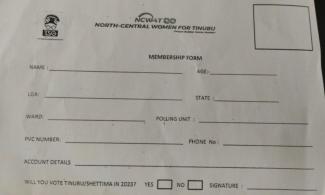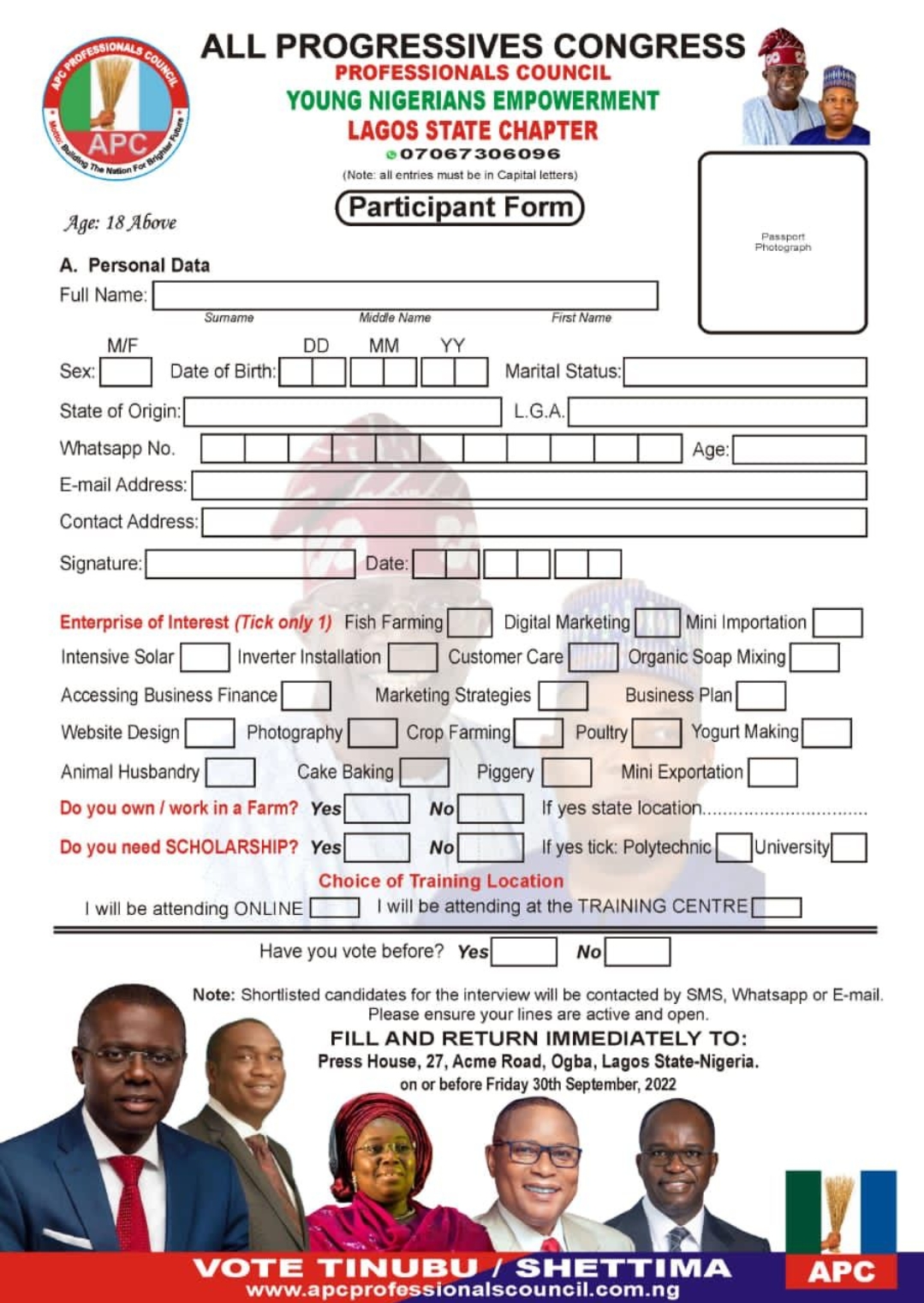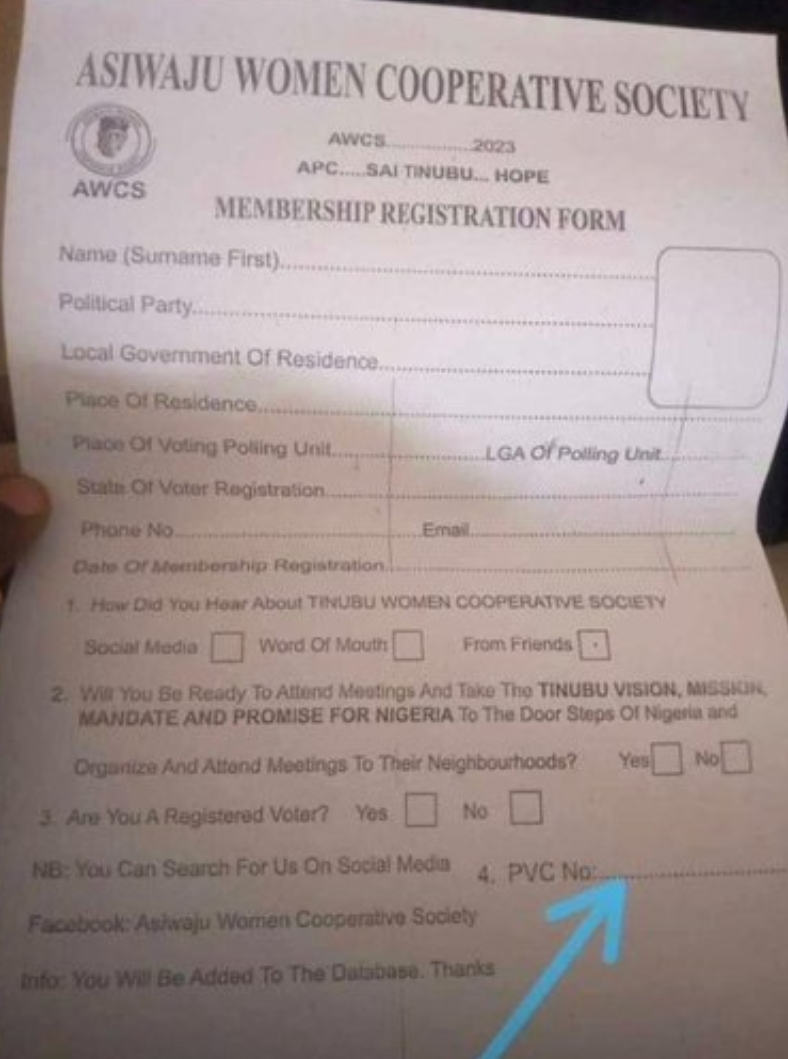
In the forms issued by Asiwaju Women Cooperative Society, members are mandated to fill in their PVC numbers as a prerequisite to joining the association.
Some groups supporting the presidential candidate of the ruling All Progressives Congress (APC), Bola Tinubu, have requested for personal information, including bank account details and Permanent Voter Card (PVC) numbers from their intended members.
In the forms issued by Asiwaju Women Cooperative Society, members are mandated to fill in their PVC numbers as a prerequisite to joining the association.

In another form which was issued by North-Central Women For Tinubu - TSG, members were asked to fill in their bank account details, PVC number, ward, and polling unit on the membership form.
Likewise, in the membership forms released by Young Nigerians Empowerment, Lagos State Chapter, a series of inducements were made to intending members. These inducements include a promise of a scholarship to anyone willing to join the group.

The reason for demanding the information may be connected to plans to engage in vote-buying during the 2023 general elections by the ruling APC, which is not strange during elections in Nigeria.
For Instance, SaharaReporters earlier reported how vote-buying had recently taken the forefront in every election in Nigeria, and the 2022 governorship election in Ekiti State governorship was no different. Interestingly, it was taken a notch higher in the governorship election.
The election was contested among 16 candidates; however, it was a three-horse race between Segun Oni of the Social Democratic Party (SDP), Biodun Oyebanji of the APC and Bisi Kolawole of the Peoples Democratic Party (PDP).
Before the election, civil society organisations, police and anti-graft agencies issued a stern warning to the electorate and political parties to shun vote-buying or risk arrest and prosecution. Rather than heed the warning to rid the electoral system of money politics, candidates and party agents devised new means to carry out transactional voting.
Also, to ensure a smooth transaction, party agents at different polling units bribed security personnel dispatched to various polling units to look the other way while the transactions were going on.
Election monitoring done in different polling units across the state revealed widespread vote-buying carried out by the top three contenders in the election.
In areas like Efon, Iyin and Ifaki, party members and some voters were paid a day before the election to reduce suspicion by security operatives, election observers and the media.
Also, designated locations for money sharing were strategically located away from the polling units, while party agents were placed in different polling units to monitor whom electorates voted for.